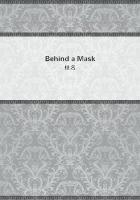But in the case of him whose trial I have described above, it was impossible that any one in the court should not have known that it was but by an accident of birth and circumstances that he was not himself also in a consumption; and yet none thought that it disgraced them to hear the judge give vent to the most cruel truisms about him. The judge himself was a kind and thoughtful person. He was a man of magnificent and benign presence. He was evidently of an iron constitution, and his face wore an expression of the maturest wisdom and experience; yet for all this, old and learned as he was, he could not see things which one would have thought would have been apparent even to a child. He could not emancipate himself from, nay, it did not even occur to him to feel, the bondage of the ideas in which he had been born and bred.
So was it also with the jury and bystanders; and--most wonderful of all--so was it even with the prisoner. Throughout he seemed fully impressed with the notion that he was being dealt with justly: he saw nothing wanton in his being told by the judge that he was to be punished, not so much as a necessary protection to society (although this was not entirely lost sight of), as because he had not been better born and bred than he was. But this led me to hope that he suffered less than he would have done if he had seen the matter in the same light that I did. And, after all, justice is relative.
I may here mention that only a few years before my arrival in the country, the treatment of all convicted invalids had been much more barbarous than now, for no physical remedy was provided, and prisoners were put to the severest labour in all sorts of weather, so that most of them soon succumbed to the extreme hardships which they suffered; this was supposed to be beneficial in some ways, inasmuch as it put the country to less expense for the maintenance of its criminal class; but the growth of luxury had induced a relaxation of the old severity, and a sensitive age would no longer tolerate what appeared to be an excess of rigour, even towards the most guilty; moreover, it was found that juries were less willing to convict, and justice was often cheated because there was no alternative between virtually condemning a man to death and letting him go free; it was also held that the country paid in recommittals for its over-severity; for those who had been imprisoned even for trifling ailments were often permanently disabled by their imprisonment; and when a man had been once convicted, it was probable that he would seldom afterwards be off the hands of the country.
These evils had long been apparent and recognised; yet people were too indolent, and too indifferent to suffering not their own, to bestir themselves about putting an end to them, until at last a benevolent reformer devoted his whole life to effecting the necessary changes. He divided all illnesses into three classes--those affecting the head, the trunk, and the lower limbs--and obtained an enactment that all diseases of the head, whether internal or external, should be treated with laudanum, those of the body with castor-oil, and those of the lower limbs with an embrocation of strong sulphuric acid and water.
It may be said that the classification was not sufficiently careful, and that the remedies were ill chosen; but it is a hard thing to initiate any reform, and it was necessary to familiarise the public mind with the principle, by inserting the thin end of the wedge first: it is not, therefore, to be wondered at that among so practical a people there should still be some room for improvement. The mass of the nation are well pleased with existing arrangements, and believe that their treatment of criminals leaves little or nothing to be desired; but there is an energetic minority who hold what are considered to be extreme opinions, and who are not at all disposed to rest contented until the principle lately admitted has been carried further.













